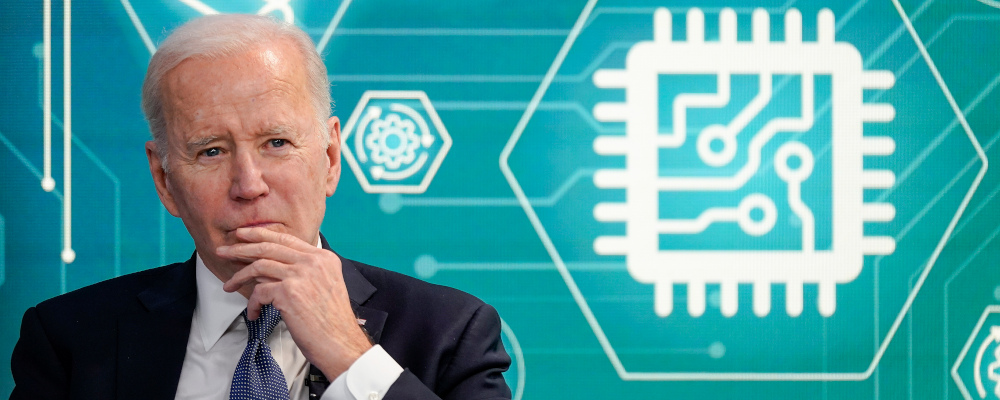This past week the U.S. government indicated
The idea of a central bank digital currency
The construction of a centrally managed currency would be far simpler, more efficient, and potentially more secure than those based on blockchain. The presence of a central ledger, as opposed to a distributed one, means that both sides of any particular transaction would be visible to the central counterparty and the processing of the transaction would not rely on any other user in the system. Furthermore, there would be no need for crypto mining, which can place an unacceptable environmental
Depending on the protocol used, a centrally managed currency need not even rely on public key cryptography, which is likely essential to any distributed ledger system. Public key cryptography is the use of an algorithm based on different, but mathematically related, encryption and decryption keys, or more pertinently for blockchain, signing, and verifying keys. Eliminating public key and the other aspects of blockchain protocols could speed processing and reduce the long-term existential risk that quantum computing poses to virtually all public key systems, including the one used in Bitcoin.
The likely use of central bank currencies would also be the opposite of Bitcoin. Bitcoin use as a transaction medium still faces significant challenges. Most holders do so in order to enjoy capital gains or to facilitate large illicit transactions, not make day-to-day payments. Central bank currencies would tend to be used in the same places where physical cash is useful; smaller, essentially anonymous transactions. The lack of interest or prospect for capital gains would likely discourage large balances. The potential efficiency benefits would make it appropriate for small transactions.
Presumably, along with the digital currency, central banks would issue a wallet in which to hold it. This would mean that holders would have an app that they could use to make payments and transfers. Like physical cash, these transactions could be accomplished without the exchange of any personal information. Anonymity between participants in a transaction could be maintained. Of course, there would not be anonymity from the central authority, which could monitor all transactions. More on that later.
Since a central bank currency would be just another form of its existing currency, it would share whatever stability and exchange features that its underlying currency possesses. Modern central banks are focused on maintaining price stability subject to some small amount of inflation and the digital form would inherit the same features. This would remove the major reason why most people hold cryptocurrencies: the prospect of long-term price appreciation. A central bank currency would actually decline in value every year by whatever inflation target is achieved.
The introduction of a digital central bank currency would have systemic implications for the banking system. Currently, the physical form of Canadian currency amounts to about $112 Billion. Those physical notes have been issued over many decades and the funds used to pay for the notes are invested in securities held by the Bank of Canada. The interest on these funds generates seigneurage income for the Bank, last year amounting to over $4 billion, most of which gets paid into government coffers. For holders, that interest represents the income that they forgo in return for having funds that are liquid and spendable. The issuance of a digital currency would undoubtedly increase the amount of currency outstanding, possibly by many times, as many might use their central bank in the way they currently use their bank balances and Interac. The benefits of higher income for the central bank would come at the expense of bank balances and fees by commercial banks and would reduce, possibly materially, their deposit bases.
But lately, trucker protests in Ottawa and the war in Ukraine have placed the trust in governments and central banks in question. That has significant implications on the marketing of digital currencies. The common feature in both these seemingly disparate situations is the confiscation of assets of supporters of trucker protests by the government and the seizing of Russian central bank deposits by central banks worldwide. The obvious question surrounding central bank currencies, and one that will now be asked more seriously, is whether central bank currencies represent unacceptable risks to holders from governments based on their security, policy, or even political concerns. Whether purchases will then be visible to governments may become a serious issue as governments with easy access to spending information could use it in the way the Chinese government implements its social credit system.
If central banks cannot establish a governance and legal framework that will give assurance that the funds held will be above political interference then their rollout will be much more difficult. The central value proposition of central bank currencies is trust. If citizens cannot be assured of trust, then they will be reluctant to use them. The spectacle of the Canadian Minister of Justice warning that Trump supporters might be subject to bank account freezes could not be more toxic to the establishment of this kind of trust and plays into the perceived advantages of cryptocurrencies. The seizure of Russian central bank deposits, for whatever well-intentioned reasons, is a significant departure from the trust in central banks that has been regarded as absolute in the past. Many people don’t see a material separation between governments and central banks, and actions that put deposits at risk without due process will erect significant barriers to trust.
Recommended for You

David Eby is holding Canada back

The strike Alberta didn’t deserve

Our peri-postliberal moment: What happens when liberalism is no longer enough?

Many young Canadians will never earn more than their parents due to social mobility barriers: Report




